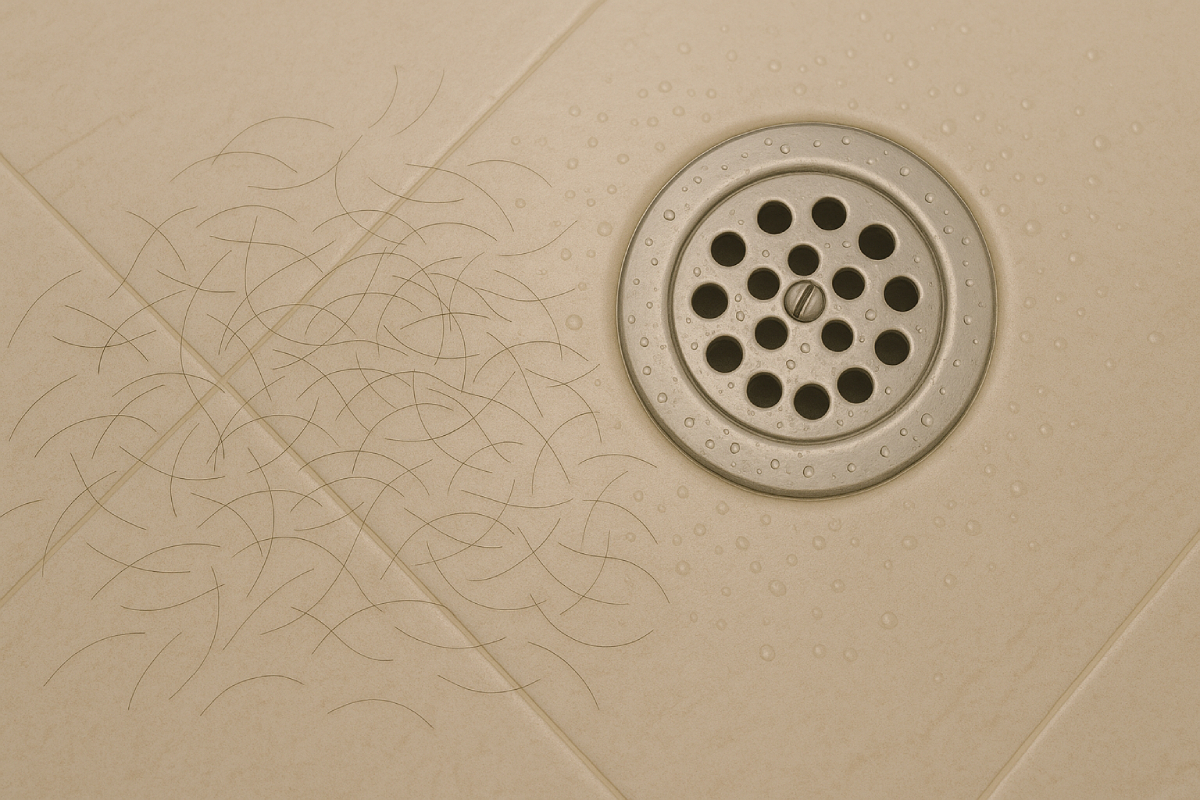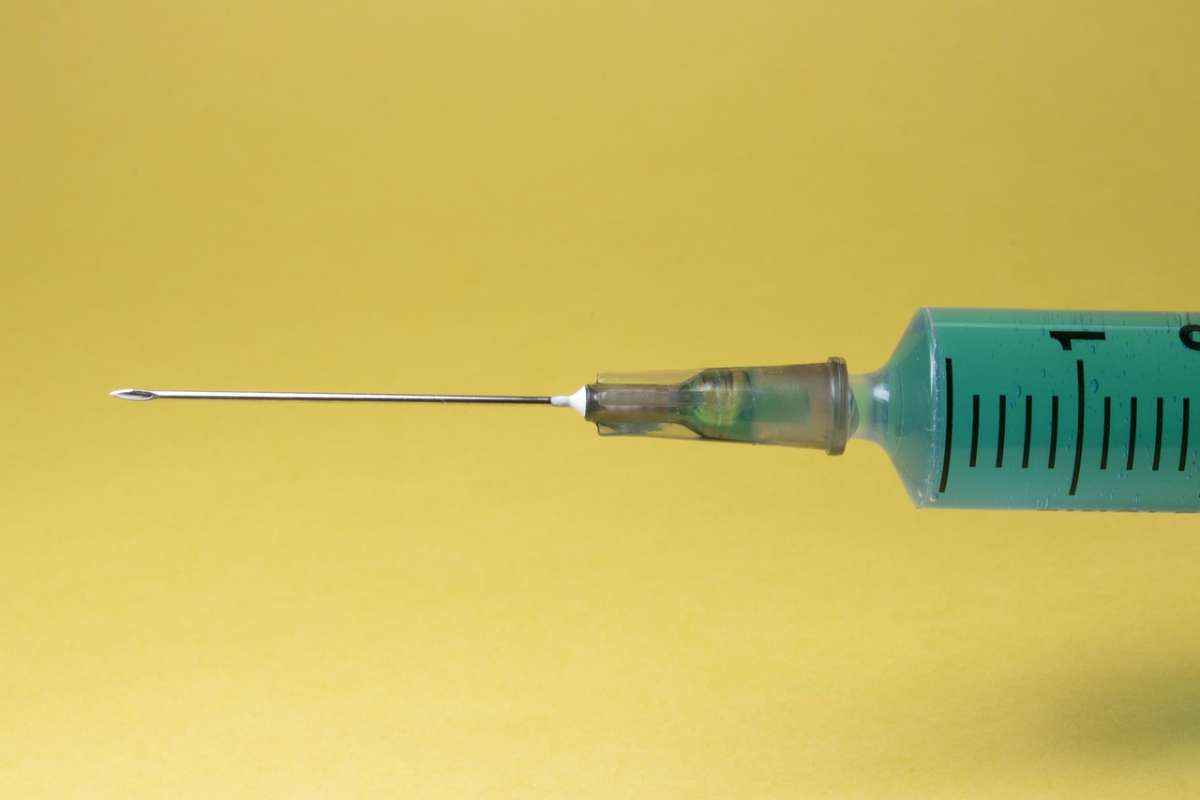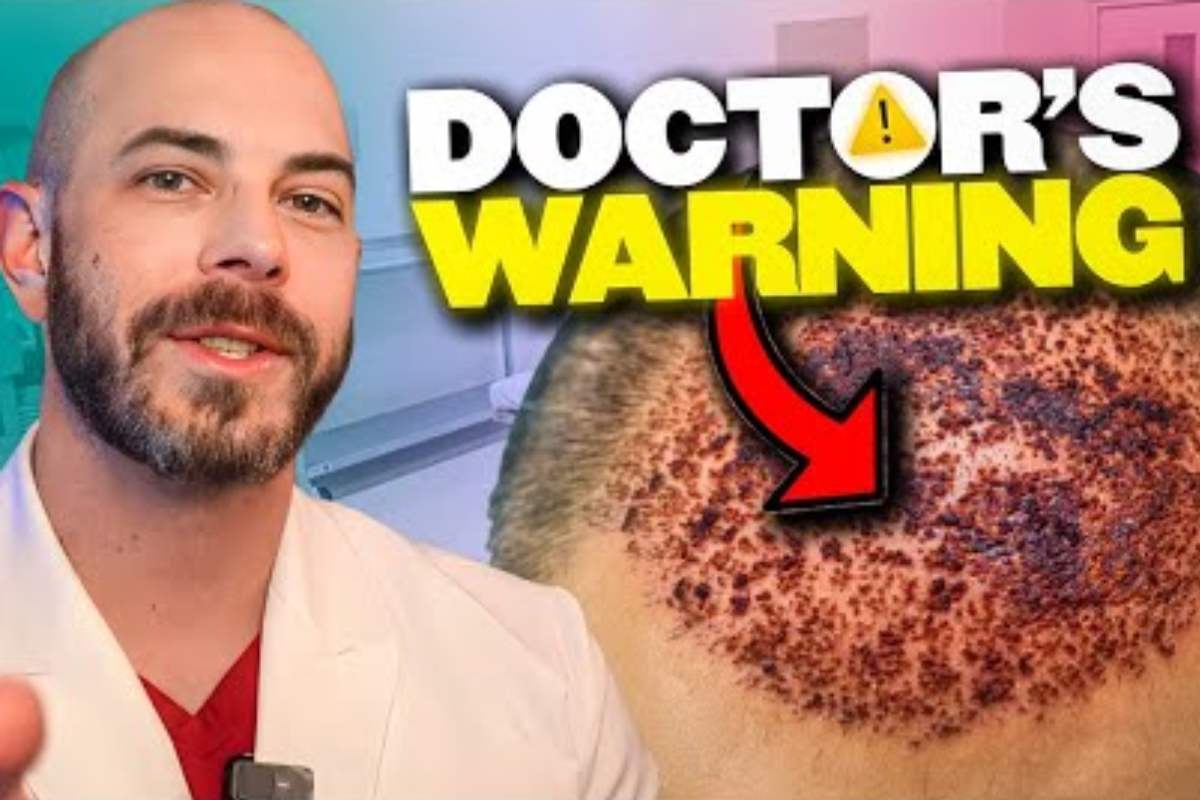When you think of hair loss, men usually come to mind. You don’t see a lot of women walking around with receding hairlines or shaved heads as a result of hair loss. However, nearly 40% of women experience some form of hair loss by age 60. This hair loss is usually triggered by every woman’s favorite period of life: menopause. Since it’s a lot less socially acceptable for women to show signs of hair loss, balding can be emotionally devastating for many women.
Today we’re going to take a look at the causes and symptoms of hair loss during menopause, as well as hair restoration treatments for women. This should help you to prevent further hair loss and grow back thicker hair.
Why Do Some Women Begin Losing Their Hair After Menopause?
You might be surprised to hear that menopause triggers hair loss in some women. After all, women typically grow fuller hair during pregnancy. The key difference between these two periods of life is that pregnancy produces higher levels of hormones, while menopause results in lower hormone levels.
Research suggests that hair loss during menopause is caused by your female hormones declining, which in turn triggers the increased production of androgens (or male hormones). Androgens are the most common cause of hair loss in women, just like they are in men. Androgens can reduce the ability of your hair follicles, causing them to producer weaker hair until they eventually produce none at all. We call this type of hair loss androgentic alopecia or “female pattern baldness”.
Interestingly, although we blame this loss on androgens, if you measure a woman’s circulating level of testosterone in the blood after menopause, it is generally not elevated. So how can low androgens cause androgentic alopecia? It’s partly still a mystery, but we do have some clues. Compared to the dramatic decrease in circulating estrogen, testosterone is relatively high. After menopause, the ratio of the hormones becomes reversed.
Hormones are often not the only things to blame when it comes to female hair loss. Several factors can be at play. If female hair loss runs in your family, you may be more likely to experience hair loss during menopause. Other hormonal imbalances, nutritional or iron deficiencies, medication, illness, conditions (like thyroid disease and anemia), diets, and surgeries can also contribute to hair loss.
How to Identify Hair Loss After Menopause Before It’s Too Late
Just because hair loss is a visible condition doesn’t mean that you’ll see it right away. In fact, people often don’t notice that they are experience hair loss until half of the process has occurred. It’s important to keep an eye on the following symptoms so that you can treat the condition as early as possible. The earlier you treat hair loss, the better your results will be. Here are a few common female hair loss symptoms:
- A widening of the part in your hair. While men’s hair often starts receding at the hairline, women typically start seeing hair loss at their part.
- Handfuls of hair coming out when you brush or shower. If you notice your hair is unusually loose, with patches coming out after a gentle tug, you may be experiencing a type of hair loss called telogen effluvium.
- Patches of hair loss. If you notice small patches of baldness where there was once hair, you may be experiencing hair loss such as alopecia areata.
If hair loss during menopause runs in your family, we recommend seeing your primary physician or a board-certified dermatologist. Dr. Krejci is a board-certified dermatologist who specializes in the evaluation of hair loss. Through careful analysis, she will be able to find out if you are suffering with hair loss and what type.
If you are experiencing hair loss, Dr. Krejci will provide you with a detailed treatment plan to prevent further loss and restore your hair. She will also review all medications and/or supplements you are taking to see if they may contribute to your hair loss, and will order blood tests that have not already been performed.
How to Treat Women’s Hair Loss
Medical therapy can be effective at preventing female hair loss and restoring hair. However, early treatment is critical to success. It’s important to start treatment as soon as you discover you are experiencing hair loss. There are a variety of non-surgical hair growth treatments to help battle female hair loss. These include the following:
- Platelet Rich Plasma (PRP): This treatment stimulates hair growth by injecting platelets from your own blood into your scalp.
- Low-Level Laser Light Therapy: This treatment uses a device that triggers hair growth through low-level lasers and LED light. It’s used for patients who suffer with pattern balding or androgenetic alopecia.
- Zinc Shampoo: Helps restore hair affected by a buildup of dead skin on your scalp and supports those with a zinc deficiency.
- 5% Minoxidil (Rogaine) foam or solution: Counteracts the shrinking of your hair follicles by extending your hair’s growth cycle and reducing the shedding cycle of your hair.
- Biotin: Nourishes hair by metabolizing fatty acids.
- Finasteride (Proscar) & Dutasteride (Avodart): Finasteride and Dutasteride prevent the hair loss causing process of testosterone being converted to dihydrotestosterone (DHT).
- Spironolactone: Like Finasteride and Dutasteride, Spironolactone works to block androgen receptors for treating female pattern baldness.
- If you’ve already experienced significant hair loss, a hair transplant may be your best option.
It’s important to visit your primary physician or a board-certified dermatologist to find out the best treatment option for your specific female hair loss condition. The Limmer Hair Transplant Center offers all of the treatments above. You can take a look at how effective these treatments are by viewing before and after images of female hair loss patients.
Menopause doesn’t have to be the beginning of the end of growing full hair. The Limmer Hair Transplant Center can put you on the path to preventing hair loss during menopause and restoring your hair if you’re already experiencing hair loss. Contact us today!







